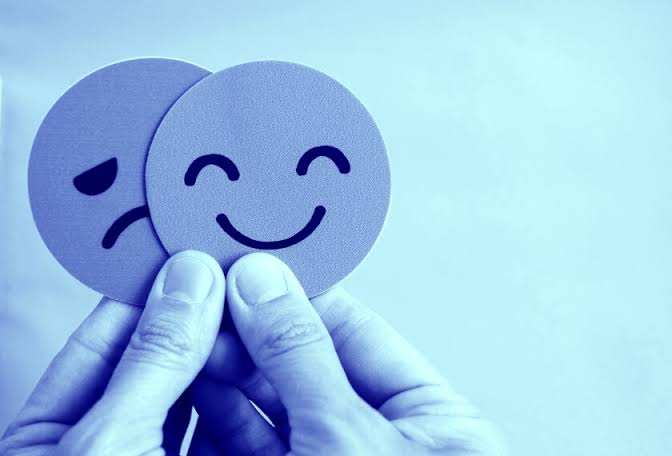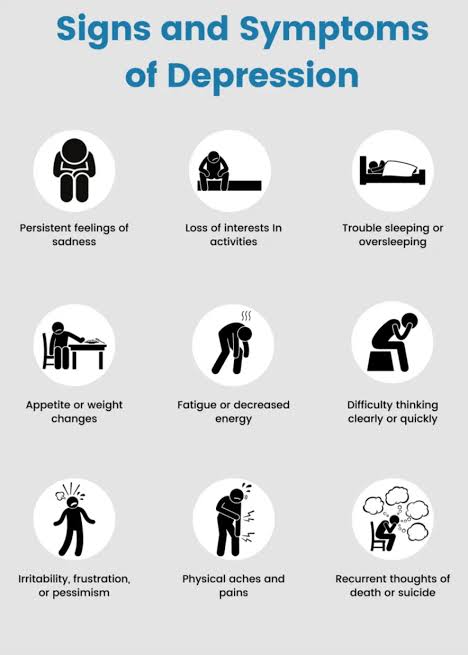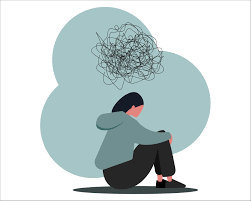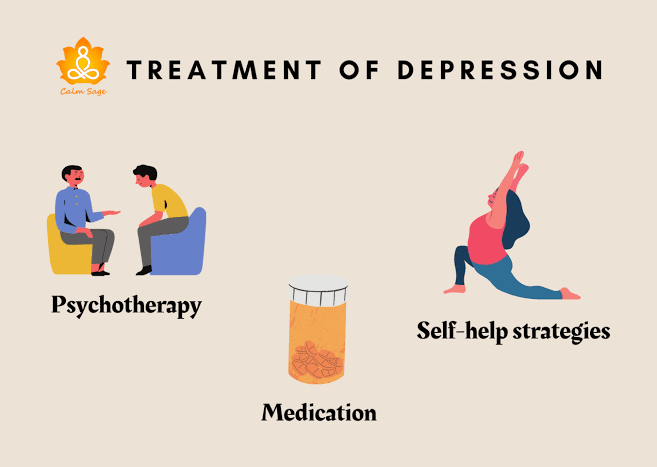Everyone experiences feelings of sadness once in a while, but make no mistake, depression is very different from sadness and persists over time.
In Nigeria, we have millions of people suffering from depression. However, because of our upbringing or limited knowledge of the matter, we don’t know how to manage them.
What is depression?
According to Mayo Clinic, depression is a mood disorder that causes a persistent feeling of sadness and loss of interest.

This mood disorder affects your feelings, thoughts, and behaviors. It can also lead to a variety of emotional and physical problems.
Depression also refers to as major depressive disorder or clinical depression. It can affect anyone irrespective of gender, age, or economic status. Also, women are more likely to have depression than men.
Anhedonia is the core symptom of depression. This is the loss of interest or pleasure in certain activities that usually bring joy to people.
Symptoms of depression
I would say that depression is a spectrum because it presents itself differently in individuals. Someone can be depressed and smile to the whole world, while another can present regular symptoms such as hopelessness and anxiety.

It’s not sadness or moodiness. A depressed person will likely lose passion for hobbies or interests and can be fixated on past failures or self-blame.
General symptoms include;
- Loss of interest in activities
- Fatigue and lack of energy
- Feelings of sadness, numbness
- Anxiety
- Fussing over small matters
- Insomnia or sleep problems
- Reduced appetite and weight loss
- Agitation or restlessness
- Slowed thinking, speaking, or body movements
- Feelings of worthlessness or guilt
- Lack of concentration
- Forgetfulness
- Suicidal thoughts or suicide attempts
- Unexplained physical problems, such as back pain or headaches
READ: Mental Illness: Causes and Perception in Nigeria
What causes depression?
What we don’t know is the exact cause of depression; there are so many factors that contribute to a person having depression.

Research suggests that depression doesn’t result from having too much or too little of certain brain chemicals. There are millions of chemical reactions that make up the dynamic system that is responsible for your mood, perceptions, and how you experience life in general.
However, doctors have attributed depression to the following causes;
- Substance use, which includes drugs and alcohol, can also cause depression or make it worse.
- Brain chemistry, which is an imbalance of neurotransmitters
- Genetics: If you have a relative with depression, you are likely to develop the condition.
- Traumatic life events can also attribute to depression, such as the death, divorce, isolation, and lack of support, which can trigger depression.
- Medical conditions like diabetes and bulimia can lead to depression.
SEE: Stress: 10 ways to manage it
The myth of depression in Nigeria

The subject of mental health is seen as important in Nigeria; the media and some health institutions continually push for awareness of various mental disorders.
However, despite these efforts, depression can be a joke by people. Many Nigerians do not believe in depression or take it seriously. Most times, when a person is showing signs of depression, people often ignore the signs and call out the person for being “rude, moody, or snappy”
What we don’t know is that with the high poverty rate of the country, and the difficulties faced by Nigerians every day, it is likely that the prevalence of depression among Nigerians will continue to increase.
It is important to distinguish between myths and facts about depression, as these myths tend to increase stigma and prejudice surrounding mental health disorders. This stigma may prevent some individuals from seeking treatment for their symptoms of depression.
READ: Healthy Habits to Develop
It only affects women
Many people think depression only affects women, which is untrue. There are thousands of men living with depression, but because of societal pressure and norms, they tend to keep it to themselves.
Society also makes it hard for men to show vulnerability, discuss their feelings or reach out for help. Some men fear that admitting depression will make them appear weak or less masculine.
Depression and sadness are the same
When comparing the two, it is important to take into account the duration and resolution of symptoms.
One important thing is that feelings of sadness do not last as long as a depressive episode. This episode can last up to 14 days if not more. Sadness is resolved with support from friends and family. Unfortunately, depression doesn’t go on its own.
SEE: Healthy Eating Habits You Should Adopt for a Better Life
Depression is due to traumatic events
While traumatic events can trigger depression, they are not the only risk factors. It can also occur without cause, even when things seem to be going well in a person’s life.
If a traumatic event occurs to someone already dealing with depression, it will likely intensify their symptoms.
READ: Domestic Abuse: Meaning, Causes, Prevention, and More
Having depression makes you weak
An average person does not wish to be depressed. It comes on its own. Nigerians believe that when you have depression, you are a weakling. Many don’t know that it has nothing to do with a person’s mental, emotional, or physical strength.
Another myth about depression in Nigeria is that people believe that you can fix it and that maybe, it’s all in your head. Many people also believe that if your parents had depression, you will have it. They also believe that you would need therapy and medication for the rest of your life.
As you can see, all of these myths are untrue and pass through many generations. It is important that we spread awareness of depression. There is a lack of knowledge of depression in Nigeria in rural areas.
It is important that health workers actively seek to diagnose depression among patients and provide the appropriate health services to ensure they get optimum treatment.
RELATED ARTICLE: Family Planning in Nigeria
Treatment

Yes, depression can be treated. Before choosing to treat it, first, you must be diagnosed. A doctor can either diagnose you with a physical examination or a laboratory test to figure out the workings of the thyroid.
Another good diagnosis is the usage of DSM-5 (Diagnostic and Statistical Manual of Mental Disorders). Doctors may use the criteria for depression published by the American Psychiatric Association.
The most important treatments are psychotherapy and medication, specifically antidepressants. Antidepressants often treat the patient’s cognitive and behavioral responses to life events.
Psychotherapy alters the patient’s cognitive and behavioral responses to stressful life events. If depressed, you should make an appointment to see your doctor or mental health professional as soon as you can.
If you’re reluctant to seek treatment, talk to a loved one, any health care professional, a faith leader, or someone else you trust.
SEE: Domestic Violence: 5 Signs you are a victim and helpful resources
Conclusion
Depression in Nigeria is very serious and should be treated as such. Myths about depression should be debunked and matters should be taken seriously.
The awareness of depression should not be taken only by healthcare practitioners. Use your voice, following to speak about issues and to educate the public.
If you know one with depression, treat the person with love. Most importantly, do not write the person off. Everyone needs love and care in the world.
